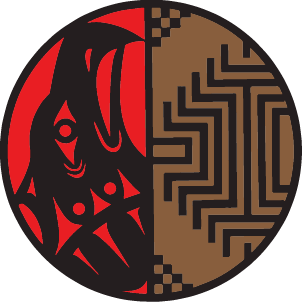Native Education

Native Literacy Guidance
We are excited to share the OSPI Native Literacy Guidance document which was created by ONE and the Native Literacy Workgroup.
Tribal Education Leaders Summit
Students' Right to Wear Tribal Regalia
Bulletin 028-25 states that school districts must permit American Indian and Alaskan Native students from federally recognized tribes to wear tribal regalia and cultural items at graduation ceremonies.
AI/AN Student Max ID
Not Finding What You're Looking For?
Submit your inquiry in this short survey and someone from our office will be in contact with you within the next two business days.
Contact Information
The Office of Native Education (ONE) provides assistance to school districts in meeting the educational needs of American Indian and Alaskan Native (AI/AN) students. ONE serves as a liaison between OSPI and school districts, tribal governments, State-Tribal Education Compact schools (STECs), tribal schools, Native communities, parents/guardians of Native children, and other groups and individuals. RCW 28A.300.105 places the Office of Native Education into statute.
- Washington State Native American Education Advisory Committee
- State-Tribal Education Compact Schools (STECs)
- Tribal Languages
- John McCoy (lulilaš) Since Time Immemorial: Tribal Sovereignty in Washington State
- Native Student Success Resources
- Support for Indian Education and Culture
- Native Education Curriculum Materials
- Rules and Regulations
- Title VI Indian Education Programs — By District
- Tribal Consultation
- Contact Information
Right to Tribal Regalia Act
Effective March 18, 2020, RCW 28A.600.500 affirms the inherent rights assured through tribal sovereignty and expressly provides that school districts must allow American Indian and Alaska Native K–12 and higher education students who are members of federally recognized tribes to wear traditional tribal regalia and objects of cultural significance at graduation ceremonies and related events. In addition, school districts and higher education institutions are required, when necessary, to update relevant policies or procedures in accordance with this law.
Bulletin 028-25 was issued by OSPI Superintendent Reykdal to every district superintendent, school principal, and school counselor affirming the right of American Indian and Alaska Native students to wear traditional regalia and items of cultural significance at graduation and other related events.
Tribal History in Social Studies Curriculum
Requirements in Washington's Basic Education Act
As districts review and revise social studies and history curricula, there are two new requirements passed by the 2015 Washington state Legislature.
- Integrate Since Time Immemorial: Tribal Sovereignty in Washington State into current and newly-adopted social studies or history curricula.
- Collaborate with federally recognized Indian tribes within or neighboring district boundaries.
Bulletin & State Law
OSPI Bulletin 006-16: Implementing Senate Bill 5433 (2015) Requirements for Teaching Tribal History, Culture, and Government
- RCW 28A.320.170 Curricula Tribal history and culture
- Senate Bill 5433 (2015) as passed by the Legislature
State-Tribal Education Compact Schools (STECs)
In 2013 the Legislature passed House Bill 1154, authorizing state-tribal education compact schools (RCW.28A.715). The bill authorizes the Superintendent of Public Instruction to enter into state-tribal education compacts. The legislation exempts schools that are the subjects of state-tribal education compacts from all existing state statutes and rules regarding school districts and district boards of directors; establishes standards for teachers, staff, and curriculum; outlines admissions policies and school funding; and establishes reporting requirements on student enrollment. Compact schools are encouraged to implement early learning pilot programs. The Department of Early Learning is directed to form a working group to develop early learning pilot programs.
The Office of Native Education provides consultation to eligible federally recognized tribes and BIE schools located in Washington state who are interested in starting a STECs.
Washington State Native American Education Advisory Committee (WSNAEAC)
The Washington State Native American Education Advisory Committee (WSNAEAC) reconvened in March 2019 with the purpose of promoting leadership and the unique principles and effective practices of Native American education which helps to assure academic success and cultural integrity at the community, school, state, and tribal levels. The committee consists of 21 members nominated by tribes and tribal organizations to provide consultation with OSPI on matters and issues related to the well-being and achievement of AI/AN students who attend public, STECs, and tribal schools in Washington state.






